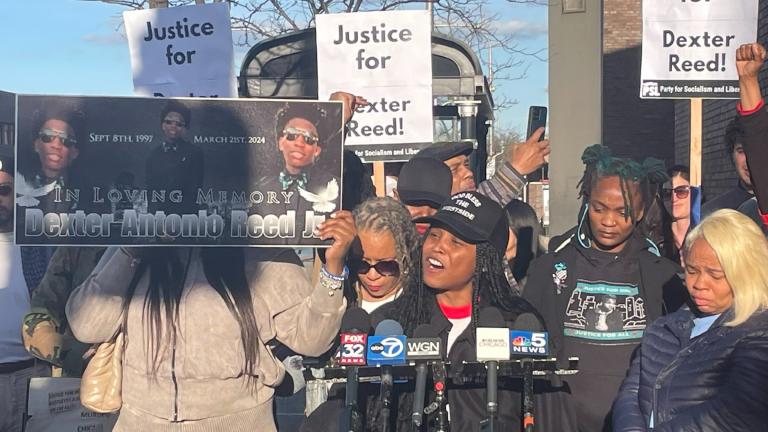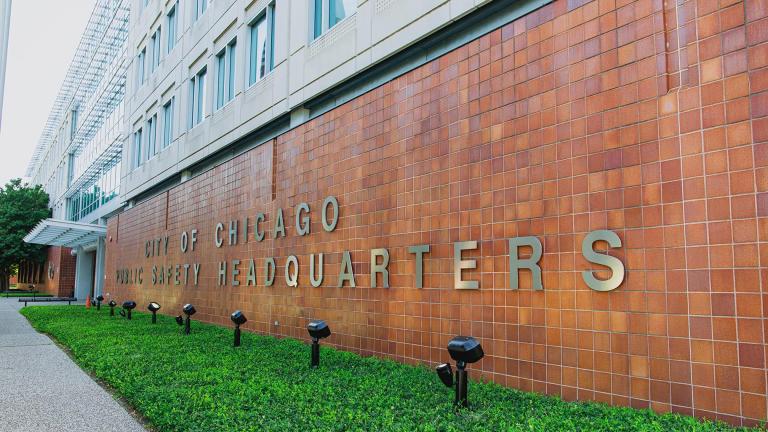An effort backed by Mayor Lori Lightfoot that would create a database of misconduct complaints filed against Chicago police officers stalled Monday amid growing acrimony between the mayor and Inspector General Joseph Ferguson.
Even though Lightfoot said Monday the plan to create a database of police misconduct files dating back to 2000 represented a “monumental” change that would serve to hold officers accountable by increasing transparency, aldermen balked.
A joint session of the City Council’s Public Safety and Finance committees declined to advance the Lightfoot-backed measure blasted by Ferguson and other transparency advocates as nothing more than “smoke and mirrors” even as mayoral allies tried to assuage the concerns that the database would only capture less than 5% of all complaints lodged against officers.
“We live in a world where perception is reality,” said Ald. Susan Sadlowski Garza (10th Ward), who said she would not be part of “jamming something down people’s throat.”
Originally, the inspector general proposed that the database include all complaints dating back to 1994. However, that date was changed to 2000 as part of the compromise to win the mayor’s backing.
Ferguson also said the plan backed by the mayor would include only complaints that were sustained. Transparency advocates said the database must include all complaints in order to identify officers and groups of officers who have been engaged in misconduct.
Finance Committee Chair Ald. Scott Waguespack (32nd Ward) said it was always his intention to include all complaints, and introduced a revised version of the database proposal to clarify that all complaints that had been formally investigated would be included.
Waguespack said it was “frustrating” that Ferguson went “nuclear” in his criticism of the proposal he crafted with Public Safety Committee Chair Ald. Chris Taliaferro (29th Ward) and backed by Lightfoot.
In addition, Waguespack revised the proposal to make it clear the database would include records of probes conducted by any city agency or the police department, including the Office of Professional Standards, which was replaced by the Independent Police Review Authority, which was replaced by the Civilian Office of Police Accountability. Lightfoot served as the chief administrator of the Office of Professional Standards from mid-2002 to late 2004.
Taliaferro accused Ferguson of being disingenuous when he told the news media that the original proposal would shield cases handled by Lightfoot from public scrutiny.
“He knew very well that was completely false,” Taliaferro said, referring to Ferguson.
Ald. Michele Smith (43rd Ward) was one of several aldermen who sought to reduce the rancor, saying she was sure the dispute was the result of a misunderstanding that could be resolved.
However, several aldermen backed Ferguson, saying the plan endorsed by the mayor was much too weak to advance efforts to reform the Chicago Police Department through transparency.
Ald. Matt Martin (47th Ward) said the proposal backed by the mayor would leave out probes prompted by anonymous complaints that were then dismissed. Those complaints would have been included in a previous version of the database, Martin said.
State law and the labor agreement between the city of Chicago and the Fraternal Order of Police Lodge 7, which represents rank-and-file Chicago Police Department officers, prohibits anonymous complaints from being used as the basis of a disciplinary investigation of an officer in most cases.
A December 2020 audit by Ferguson said too many anonymous complaints were dismissed by investigators even though they were supported by evidence of wrongdoing.
Those complaints should be included in the database to prevent a “huge loss” in the historical record, Martin said.
Ald. Leslie Hairston (5th Ward) dismissed calls by several of her colleagues, including Ald. George Cardenas (12th Ward), the mayor’s deputy floor leader, not to let the perfect be the enemy of the good. The current plan is “not enough,” Hairston said.
“I am asking my colleagues to please grow a pair and do the right thing,” Hairston said.
Contact Heather Cherone: @HeatherCherone | (773) 569-1863 | [email protected]








